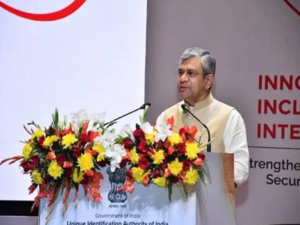A Fresh Era of Online Frauds is Sparked by IPL 2025: Reports

A Fresh Era of Online Frauds is Sparked by IPL 2025: Reports
The spread of fraudulent ticketing websites is one of the major risks mentioned in the research.
While cricket fans nationwide are enthralled with the 18th edition of the Indian Premier League (IPL), cybercriminals are taking advantage of the tournament’s enormous popularity to swindle unwary customers online. Global cybersecurity company Kaspersky reported a dramatic increase in IPL-related fraud aimed at stealing financial and personal data.
The spread of fraudulent ticketing websites is one of the major risks mentioned in the research. These websites, complete with logos, branding, and expert design, are made to closely resemble official IPL ticket gateways. After being duped into inputting their card information, fans who want to buy match tickets discover that they cannot get refunds and that no tickets are sent.
According to the research, “scammers are using fake platforms to lure users and siphon off their money due to the high demand for tickets to marquee IPL matches.” Fraudulent streaming websites have been identified as another scam.
Despite claiming to provide free live streaming of IPL events, these websites actually send consumers to malicious or phishing websites. Users may occasionally be asked for personal information or unintentionally sign up for services that do not exist.
A popular fraud that was proliferating on WhatsApp and other messaging apps was also discovered by Kaspersky. In return for their phone numbers, consumers are guaranteed free IPL tickets under this campaign.
In order to continue, they are then told to share the promotional message with contacts or groups. According to the research, the main goal of these scams is to gather personal information for later phishing assaults or sales on illegal online marketplaces.
Cybercriminals take advantage of fan excitement with dishonest schemes during events like the 2025 Indian Premier League. The threat landscape is more complicated than ever since AI is now being used to create incredibly convincing scams, according to Purshottam Bhatia, Head of Consumer Business for India at Kaspersky.
Phishing scams rose 26% worldwide in 2024 compared to 2025, according to Kaspersky, and this trend is predicted to continue. Internet users are urged by the research to exercise caution, stay away from dubious connections, and not divulge personal information on unreliable websites.
The public is also being advised by authorities and cybersecurity specialists to avoid questionable streaming sites and only buy IPL tickets from authorized vendors.
About The Author:
Yogesh Naager is a content marketer who specializes in the cybersecurity and B2B space. Besides writing for the News4Hackers blogs, he also writes for brands including Craw Security, Bytecode Security, and NASSCOM.
READ MORE








